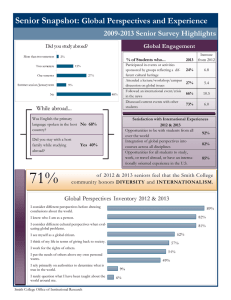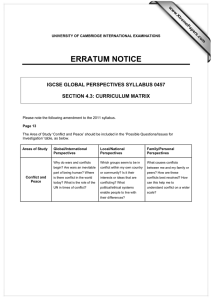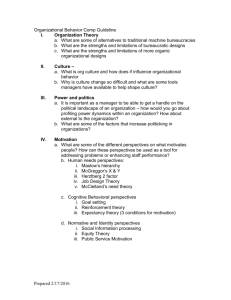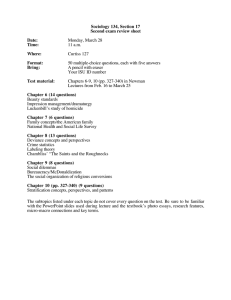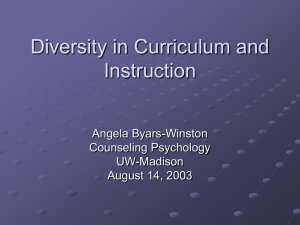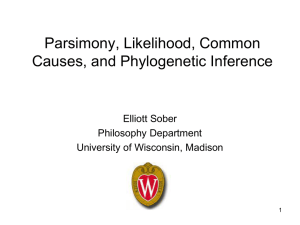Doctoral Comprehensive Examination in Public Administration School of Public Affairs American University
advertisement
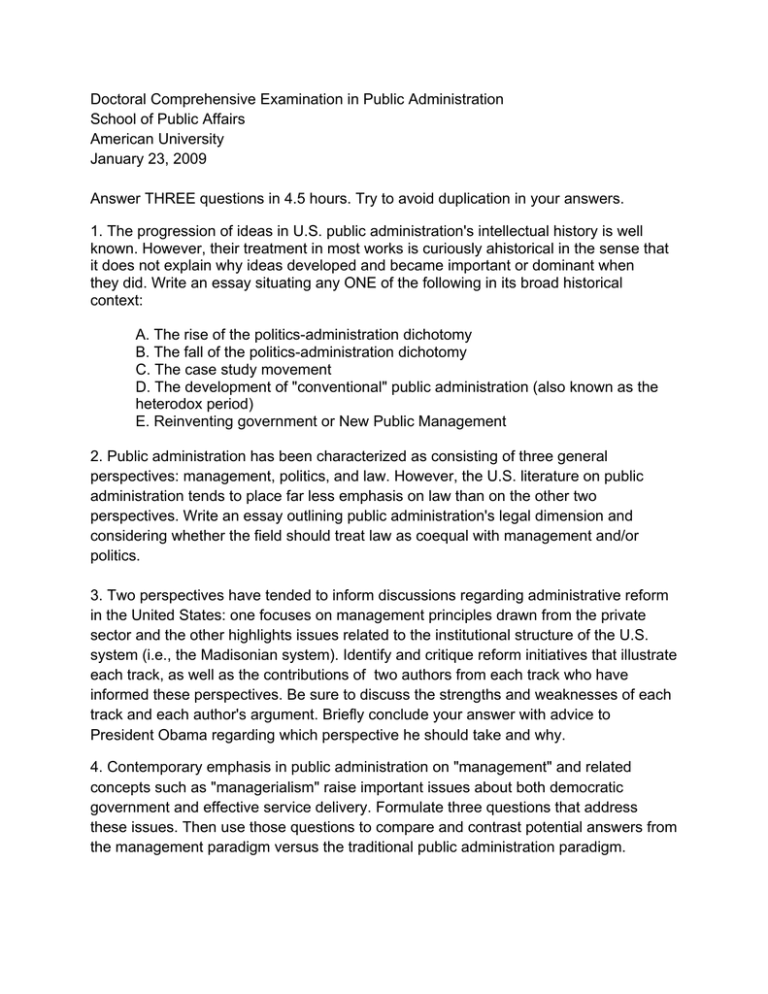
Doctoral Comprehensive Examination in Public Administration School of Public Affairs American University January 23, 2009 Answer THREE questions in 4.5 hours. Try to avoid duplication in your answers. 1. The progression of ideas in U.S. public administration's intellectual history is well known. However, their treatment in most works is curiously ahistorical in the sense that it does not explain why ideas developed and became important or dominant when they did. Write an essay situating any ONE of the following in its broad historical context: A. The rise of the politics-administration dichotomy B. The fall of the politics-administration dichotomy C. The case study movement D. The development of "conventional" public administration (also known as the heterodox period) E. Reinventing government or New Public Management 2. Public administration has been characterized as consisting of three general perspectives: management, politics, and law. However, the U.S. literature on public administration tends to place far less emphasis on law than on the other two perspectives. Write an essay outlining public administration's legal dimension and considering whether the field should treat law as coequal with management and/or politics. 3. Two perspectives have tended to inform discussions regarding administrative reform in the United States: one focuses on management principles drawn from the private sector and the other highlights issues related to the institutional structure of the U.S. system (i.e., the Madisonian system). Identify and critique reform initiatives that illustrate each track, as well as the contributions of two authors from each track who have informed these perspectives. Be sure to discuss the strengths and weaknesses of each track and each author's argument. Briefly conclude your answer with advice to President Obama regarding which perspective he should take and why. 4. Contemporary emphasis in public administration on "management" and related concepts such as "managerialism" raise important issues about both democratic government and effective service delivery. Formulate three questions that address these issues. Then use those questions to compare and contrast potential answers from the management paradigm versus the traditional public administration paradigm. 5. Using examples from the literature as illustrations, discuss whether or not, and why, you agree with the following statement regarding policy implementation: "The early study of policy implementation was characterized by a focus on context over parsimony which informed practice but led to a dearth of theory building, while most recently it has been characterized by a focus on parsimony that may advance theory but offer little to practitioners." 6. Public administration has incorporated concepts from a variety of disciplines over the years, including sociology, economics, ethics, anthropology, political science, business, philosophy, feminist theory, decision theory, law, engineering, critical theory, and history. In your judgment, what field--and at least three scholars within in it--has made the most significant contribution to advancing theory building or practice in public administration? 7. The study of public administration was launched with the hope that investigators could discover universal principles that accurately predicted the quality of administrative work under any conditions. More recently, scholars have questioned whether such principles exist. Why have they done so? What would a theory of administrative relativity look like? What questions would it attempt to answer and what variables would it utilize? Your answer should focus on public administration, but may refer to theories of relativity or uncertainty principles that guide other fields. 8. Discuss the methodological and interpretive advantages, disadvantages, and challenges of cross-sectional versus longitudinal statistical research designs citing literature from the study of any subfield in public administration (e.g., budgeting, human resource management, contracting, etc).

